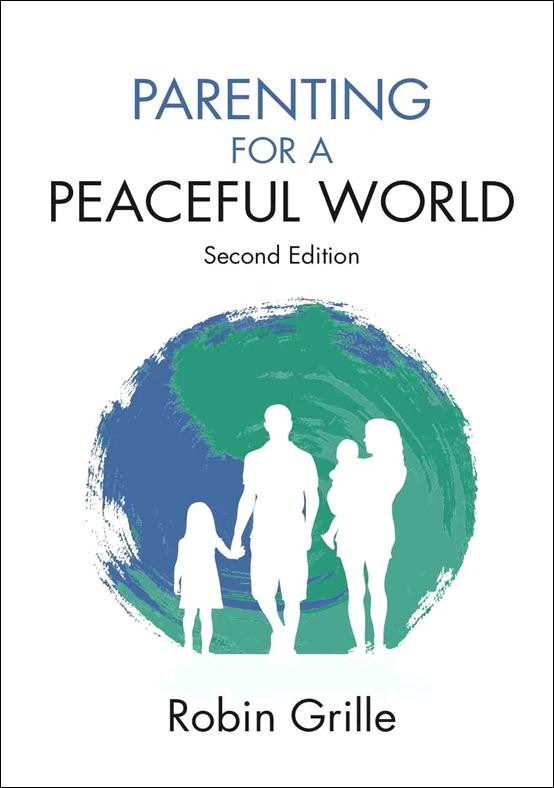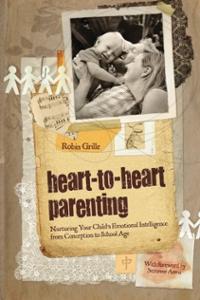A Parent’s Right To Pleasure: Emotional Wellness For Moms And Dads
When a new baby arrives, most mothers and fathers notice themselves undergoing some profound emotional changes. One pair of parents told me they could not bear to watch the news on television for a long time after their first baby was born. All of a sudden, images of tragedy had become a lot more upsetting. Both of them were surprised at how much more sensitive they had become.
It might seem bewildering to find all your emotions amplified once your child is born. This pronounced sensitivity probably won’t last longer than the first few months of your baby’s life, but it is a natural and healthy part of parents’ development.
Forget Logic: Give In to Irrational Love

When a new child arrives, both Mom and Dad undergo intense hormonal changes. You might find yourselves feeling more vulnerable, teary, elated and more tender and affectionate than you have ever known yourself to be. You might also find yourself feeling more protective, tense, watchful and reactive. At the core, this is a wonderful transformation that is taking place, and you should welcome it, surrender to it. It is precisely this emotional aliveness that helps you to be protective and to tune in and connect to your baby. Many mothers and fathers have cried together and laughed together during the birth of their child, and for days afterwards. This is not a time for being logical and composed. It is a time to give in to the power of irrational and senseless love. We do a great injustice to parents—and worse, to their baby—if we interfere with or judge this beautiful and natural process.
One father told me how he spontaneously burst into tears the moment his daughter was born. The nurses clumsily told him, “Get over it, your wife and baby are healthy.” What a pathetic misreading of the ineffable joy and wonder behind his tears. Another man I know was so ecstatic he ran into every single shop in our local community shouting about the birth of his son to everyone who happened to be there, friend or stranger. Startled bystanders clapped and cheered him; his boundless joy became everyone’s joy and he lit up our community like a sun. When my daughter was a few days old I tried to sing a love song to her, but broke down and wept. So many fathers and mothers become mistyeyed when they recall the birth of their child.
Although the emotional changes are not so immediately visible for everyone, most parents will experience some kind of softening around their hearts—and the effects are stronger if we welcome them. These changes are more than just a natural mechanism to help us to be more nurturing and sensitive as parents. We should all give thanks to our children for bringing us back to our hearts so irresistibly, for helping us to be more human.
Shifting to a Heart-Centered Life
Living in this task-oriented culture, we seem to be achieving material wonders while we starve for connection and a heart-centered life. Families are disintegrating and depression is at epidemic levels. Our unbalanced focus on productivity has made us successful, yet empty and alone. If we are to bring spirit, passion and a sense of belonging into our lives, we need to wholeheartedly embrace this return to our feeling natures, to make room in our lives for the swell of emotion brought to us by our children. Our emotional inner world is what connects us to each other, and connection brings harmony to our families, our communities and our world.

Beginning with the tender early months with our new baby, Nature has prepared for us parents a range of ineffable experiences, surprising in their depth, unlike anything we may have known before. Moments of calm togetherness will stimulate flows of oxytocin, the hormone of love and connectedness. This natural gift is meant for your surrender, and it will feed your heart just as you nurture your child. The psychology of bliss merely requires that you pay quiet attention to any sensations in the center of your chest, and to the baby in your arms. Here is what I’d like you to look for, if you haven’t already found it:
Sitting with your baby when all is well, you might find yourself being lulled into a deep tranquility, a sense of peace and satisfaction that envelops you. It can be like a spontaneous meditation, a trancelike state in which your mental chatter dies down and you simply enjoy being there. Let yourself sink into this experience, let your baby take you there. Hang out idly together, looking at each other sometimes, humming a tune or just sitting quietly with your eyes closed. Allow there to be a space free of plans and lists, let there be sweet nothing, and just observe the many changing emotions and expressions that pass between you. Mothers and fathers can both do this, whether you are feeding your baby or just sitting together enjoying each other’s presence. You might find this particularly relaxing if you are in a rocking chair. Just enjoy the feel of your baby’s little body against yours, and take the time to do…absolutely nothing.
If you give in to these quiet moments with your baby, you might find that a deliciously peaceful feeling sweeps over you. If you make a special time to enter into this meditative space together, this can be one of the most nourishing acts for you and for your baby.
For mothers, breastfeeding generates a cocktail of bliss-inducing hormones like oxytocin. But Nature also includes fathers in this delicious hormonal trance—just sitting quietly together, especially if you have direct skin-to-skin contact with your baby, will generate this hormonal infusion for both parents. Early childhood seems to provide repeated opportunities for you and your baby to feel more than just contented. It is as if Nature is doing its best to take you and your baby into states of bliss.
Reclaiming Our Capacity for True Bliss
 If that is the case, then what has happened to this human capacity for bliss? Has it been lost to us? Is it something reserved for mystics, monks and those who practice yoga and meditate for hours every day? A natural birth, breastfeeding and healthy attachment—those most generous purveyors of ecstatic hormonal flows—have been quite badly interfered with on a global scale and have all but been eliminated from childhood. Is it any wonder that we have lost touch with so much of the pleasure and the joy that comes from bodily life? Our brain’s pleasure centers have not been given the chance to grow enough neural connections, which leaves us feeling empty and needy. In their millions, people around the world spend their lives searching for this missing link to inner fulfillment. We look desperately for the lost bliss in artificial substitutes such as drugs, alcohol, food, fame, money or compulsive sexuality. All the mechanisms to produce these feelings exist in our nervous systems, but it is as if the bliss centers remain unplugged or the wiring has been cut.
If that is the case, then what has happened to this human capacity for bliss? Has it been lost to us? Is it something reserved for mystics, monks and those who practice yoga and meditate for hours every day? A natural birth, breastfeeding and healthy attachment—those most generous purveyors of ecstatic hormonal flows—have been quite badly interfered with on a global scale and have all but been eliminated from childhood. Is it any wonder that we have lost touch with so much of the pleasure and the joy that comes from bodily life? Our brain’s pleasure centers have not been given the chance to grow enough neural connections, which leaves us feeling empty and needy. In their millions, people around the world spend their lives searching for this missing link to inner fulfillment. We look desperately for the lost bliss in artificial substitutes such as drugs, alcohol, food, fame, money or compulsive sexuality. All the mechanisms to produce these feelings exist in our nervous systems, but it is as if the bliss centers remain unplugged or the wiring has been cut.
The common problem of substance addiction would be dramatically reduced if we, as a society, did more to support the parent-baby connection at its fullest. This is not just speculation. Scandinavian researchers have linked substance abuse to the use of painkilling drugs during labor. The evidence showing that insecure attachment can lead to substance abuse is even clearer. Psychotherapists have known for a long time that obsession with power, fame or fortune is also a desperate compensation for the empty space inside where parental love and blissful connection should have been. These kinds of research and clinical findings have convinced many psychologists to redefine addiction to drugs or alcohol as an attachment disorder.
The bliss connection can be relearned in adulthood; we don’t need to see ourselves as irreparably damaged if early childhood did not furnish us with this fundamental biological experience. Psychological healing involves experiences that stimulate the growth of new neural pathways in the brain, much like forging new tracks through a forest to a clearing that is bright and sunny. Healing is about connection: stronger connection to our selves (our feelings, our emotional needs, our dreams and yearnings), and enriched connections with others. But thinking about our children: Doesn’t it make more sense to take advantage of the opportunities offered so generously by Nature during their earliest childhood? The human brain grows fastest during the first three years, and it can be quite a bit harder for a mature nervous system to relearn its connection to wellness.
The human body is designed for sublime pleasure. I don’t just mean transient, genital pleasure, and I’m not just talking about shallow hedonism here, but the physically perceptible pleasure that appears in our hearts when we love, or when we stand before something of great beauty. I am talking about the all-over pleasure that is the pleasure of the soul. Life provides all of us with ample opportunities for following our bliss as adults. If we choose a line of work that has a lot of meaning for us, it can bring us profound satisfaction. Immersing ourselves in Nature can restore our emotional wellbeing, if we let it. We can be enraptured by listening to a piece of music, looking at an exquisite work of art, reading poetry or literature—or creating any of these ourselves. Dancing, intense exercise or a thrilling sport can also be avenues to peak, ecstatic experiences. Meditation is a well-accepted doorway to blissful depths. When you add these things together, it looks like bodily life teems with abundant fonts of joy—and the best are free of charge. Of all life’s pleasures, it seems like relationships may be the most rewarding. When we connect with people we care about, oxytocin levels go up—and when we are making love, it rains oxytocin!
Our nervous systems are innately capable of peak moments of bliss and profound states of peace. If enough children are given the fulfilling connection that is evolution’s design, we could create the most loving and peaceful societies that ever graced the earth. I am not suggesting that human suffering and human conflict can be entirely eliminated, but I do mean that our potential for human love, enjoyable living and social harmony has so far only been superficially tapped. Our progress towards more natural styles of parenting is a key to reclaiming humanity’s emotional health.
Read More: Why Your Child Needs A Blissful Parent!
Watch Robin Grille Talk About the Truth About Parenting Instinct


